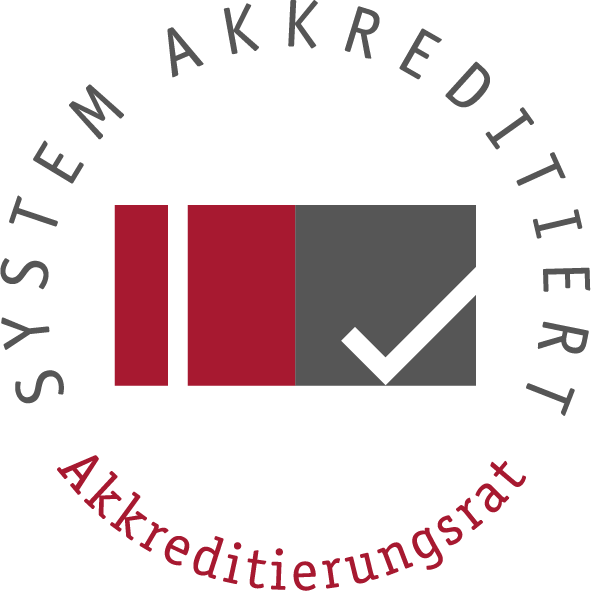Materials Chemistry (M.Sc.)

The M.Sc. programme in Materials Chemistry at Saarland University is unique in Germany. The programme combines advanced theoretical and practical training with a strong research element in an interdisciplinary field that spans chemistry and materials science.
Students with a background in chemistry and those with a background in materials science become acquainted with both the natural science perspective and the engineering science approach, and have the opportunity to apply the knowledge acquired during their Bachelor’s degree studies to problems in materials chemistry. One of the key features of the Master’s programme is the way in which it combines the methodologies of chemical synthesis and materials characterization with problems of relevance in the field of materials science. By uncovering and establishing chemical relationships, students learn how to optimize the properties of a material with respect to its potential applications.
Students on the M.Sc. programme 'Materials Chemistry' select modules from the very wide range of courses on offer. This allows students not only to strengthen their chemical and engineering knowledge, but also to choose an area of special interest in materials chemistry, which they then study in greater depth. The interdisciplinary lab courses underscore the particular importance attached to the practical relevance of the programme's content. The lab courses provide students with important practical experience, initially in the area of chemical synthesis and later in the methods and techniques used in materials science to characterize materials. The M.Sc. programme maintains close cooperative ties with a number of research institutions on campus, such as the Leibniz Institute for New Materials, but also with companies in the region, such as those working in the field of nanotechnology.
Graduates from the programme are ideally prepared for careers in industry, research institutes or in the public sector. With their thorough understanding of materials science combined with expertise in chemical synthesis and material characterization methods, graduates from the M.Sc. programme are in high demand in industry. In addition, the Master’s programme provides an excellent foundation for graduates wishing to undertake subsequent doctoral research work.
To graduate from the research-focused Master’s degree programme in Materials Chemistry students are required to earn a total of 120 ECTS credits.
Students who have a Bachelor's degree in chemistry or material science must earn 45 credits from the compulsory modules and a further 45 credits from the mandatory elective modules offered.
The mandatory section of the curriculum comprises the modules 'Material Characterization' and 'Material Structure' and project-based practical training. For chemistry graduates, the module 'Classes of Materials' is mandatory, while materials science graduates must complete the module 'Chemical Synthesis and Analysis'.
In the mandatory electives section, students are required to earn 45 credits from the following modules:
- Inorganic Materials and Metals
- Polymeric Materials
- Composites
- Nanobiomaterials
- Surfaces and Interfaces
- Energy Technology
- Materials Processing
- Simulation Methods
- Theoretical Principles
- Materials Chemistry
- Biomaterials
Students earn 30 ECTS credits for the Master’s thesis module, which requires them to complete a supervised scientific project.
Students seeking admission to the consecutive Master’s degree programme in Materials Chemistry must have a Bachelor's or equivalent university degree in chemistry of materials science and will need to demonstrate their particular aptitude for this M.Sc. programme. Applicants must also demonstrate adequate language proficiency in German and English.
Bachelor's degrees in chemistry or materials science from a German university or equivalent higher education institution will be accepted without requiring equivalence to be verified. Other Bachelor's degrees or academic qualifications gained through examination will also be recognized provided that the equivalence of these qualifications has been officially verified.
An applicant’s suitability for the Master’s programme is typically demonstrated by them having an undergraduate with an overall grade of 2.5 or better on the German academic grading scale. The aptitude of applicants whose Bachelor's degree does not meet this criterion will usually be determined in a selection interview.
Regulations
- Study regulations (in German)
- Examination regulations
- Older study regulations that are now being phased out (in German)
Programme content
- Module descriptions (in German)
How to apply
Students can begin the M.Sc. programme at the beginning of the winter or summer semester. The application period normally runs from the beginning of June to 15 July if you plan to begin studying in the winter semester and from the beginning of December to 15 January if you want to start in the summer semester.
Applications for admission are submitted online via Saarland University's student information management (SIM) portals. If you have any questions about using the SIM portals, please check out our SIM Saarland help pages.
| Standard period of study | 4 semesters |
| Language of instruction | German and english |
| Restricted-entry programme | No |
| Application period | Winter semester: beginning of June to 15 July Summer semester: beginning of Dezember to 15 January |
| Tuition fees | None |
| Semester fee | See current fee structure |
| Web page | Web page of the study programme |
Course adviser
Christian Völzing
Phone: +49 681 302-2413
c.voelzing(at)mx.uni-saarland.de
www.uni-saarland.de/materialchemie
Central Student Advisory Service
Saarbrücken Campus
Building A4 4, Ground floor
Phone: +49 681 302-3513
studienberatung(at)uni-saarland.de
www.uni-saarland.de/studienberatung
Central Student Advisory Service
Saarbrücken Campus
Building A4 4, Ground floor
Phone: +49 681 302-3513
studienberatung(at)uni-saarland.de
Central Student Advisory Service

Accredited study programmes
Saarland University was one of the first universities in Germany to achieve Quality Assurance Accreditation and has held the Accreditation Council's official quality mark continuously since 2012.
Quality management
